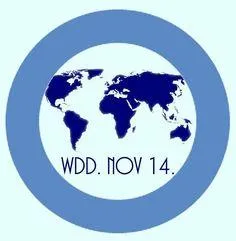Hellooo!!Algivien from here could I give me detailed and understandable information on how to calculate the ratio/insulin/carbohydrates?If it is not much clear discomfort.
Is that according to the explanation of my educator my ratio is like this:
1: 1 breakfast
Food 4: 0.5
Dinner 4: 0.5
But I don't know if it's correct
No signature configured, add it on your user's profile.
The ratio varies and is personal of each one.
It is a matter that based on trial and error you are giving with the key of what you need.
No signature configured, add it on your user's profile.
There is no exact calculation.It depends on each one and their lifestyle
We start from what doctors tell us and then we change as we learn.
Follow the guidelines that have given you and aim at hydrates, the departure glucose value, insulin and glucose units 2 hours after having eaten.
If at 2 hours you are above 180mg/dl means that you need more fast insulin, if it gives you hypoglycemia during its effect, you have insulin left over.
This is proof and error and changes every day according to sport, stress, diets, etc.
Lada enero 2015.
Uso Toujeo y Novorapid.
@Ruthbia okay and to calculate with the novorapid 1: 1 at breakfast, I would have, k start from a glycemia in the range, right?And could you also do the same calculation 1: 1 at food and dinner?Example
Dinner 50g of pasta/1RAC/1U
No signature configured, add it on your user's profile.
@Unachicacondt1
To know your fast factors you have to get a blood glucose control before food.Point the rations and insulin units and measure glycemia at about 2 and a half.If for example, you have eaten 3 portions and you have put three units and at 2 and a half you are good of blood glucose means that your factor is 1: 1.Breakfast, food and dinner factors can be different, with what you always have to do that check.
Are you sure Q 50 gr of pasta are equivalent to a ration?A ration is 10 gr of carbohydrates.Read the GR of carbohydrates per 100 gr.and check the calculation of rations
DM1 desde Marzo 2018 (53 años). 7-10 unidades basal: Abasaglar (insulina glargina). NovoRapid. Factor 1.0/1.5.
Vivo en Alemania. CarboH total dia 70-80 gr. Deporte Gym todos dias L-V 1h-2 h
HbA1c 5,5% (Abril 2022)
Dexcom G6
@jldiazdel It is worth finding if what I understand for example at breakfast I take 1racc and I put 1u at 2h I look if I pass from the target range, it is necessary to say that I have to increase 1u more the next day and go checking custas units you need myBody with the amount d Hc q Consume and and go looking if I am in Obj range.The 50G looked at the Diabetes Foundation Rations Table Q puts Q 50g cooked is 1Rhc
No signature configured, add it on your user's profile.
Exact @unachicacondt1!
That is.You eat 2 R and you put 2 units, if at 2.5-3 hours below 140, your ratio is 1r: 1ud, if you exceed 160 you should use 1.5 you, sometimes you need measures units or eat more if more ifYour pen has no half units.
Eye!The ratios change.In breakfast is usually missing insulin than meals or dinners.
Menstrual cycles also alter the proportions.
Lada enero 2015.
Uso Toujeo y Novorapid.
It is true that the ratio/rations-grams/dosís ui, it is personal, each person has k go, checking k ratio ... etcsame rations/GRMS.Generally an IU of fast action insulin is 10-15gr of carbos.This ratio can vary from 6-30gr or more carbos, depending on the sensitivity of a person to insulin.
CALCULATION OF THE RAT, DIVIDA THE N ° OF CARBOHYDRATS GRMS by fast insulin UI that uses, for example.
Breakfast: 45g HC 3UDS Fast 45: 3 = 15gr HC/1U.Ratio: 15/1 looks at the 2 breakfast of the following days and looks at ratio 15/1.If it meets, then that ratio is used.
Another example.
Breakfast: fruit (orange) 200gr/2 r hc 2u calculation 200: 2 = 100gr
100/1 ratio
No signature configured, add it on your user's profile.
Well the calculations can be made in two ways on the one hand HC/units rations and on the other hand rations-free/hc/units I read on a page that is more effective the calculation of rations-chores/Hc/units.
1st Example, 2R HC 2U CALCULATION: 2: 2 = 1U.Ratio 2/1
2nd example 400grhc/4Rhc/2u.
400: 2 = 200 ratio 200/2yo weight food
100 gr of cooked pasta are 2Rhc
+ 200 gr of fruit another 2RHC in total total 4Rhc/2u.
The+units are different from each meal.Well TB depends on the rations K feels like each person at each meal, because I am sometimes felt like breakfast a bowl of milk with cereals.
No signature configured, add it on your user's profile.
I don't understand anything you say, well just a little, but the cooked paste has for 100g about 30g of HC., So a ration is 33gr.
No signature configured, add it on your user's profile.



